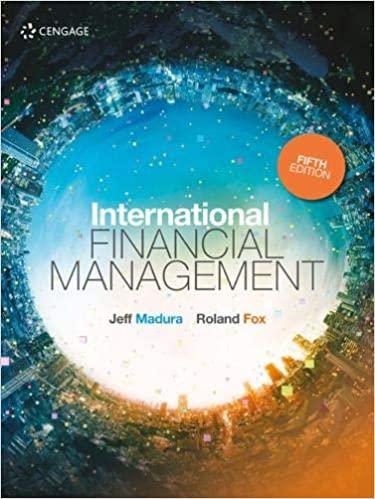
Question1 In the second quarter of 2013, Tesla Motors, Inc. (symbol: TSLA) raised $600 million in debt markets by issuing senior convertible bonds. Tesla used a large portion of this capital to repay a loan provided by the Department of Energy in 2013. The prospectus supplement that contains details about the convertible bond issuance can be found using the following link from the SEC website: http:/1.usa.gov/11DpDLO a) The prospectus supplement states that conversion is only allowed under certain circumstances. These circumstances are outlined in the second paragraph of the prospectus (the paragraph begins with "Holders may convert their notes...". In your own words, summarize these circumstances and discuss why you think these rules are in place b) Explain why a company like Tesla would be interested in issuing convertible bonds as opposed to straight bonds. c) Each convertible note is priced at $1,000, has a face value of $1,000 and a 5-year maturity, and pays a coupon of 0.75 percent every half-year. Assume that if Tesla were to issue straight debt, it would have an expected return of 2 percent per half-year. What is the value of the conversion option for each convertible bond? Suppose that it is June 1, 2017 and you own one Tesla convertible bond. This convertible bond was originally issued on June 1, 2013 and has a maturity date of June 1, 2018. You are considering two choices: convert the bond into shares right now (the conversion ratio can be found on the first page of the convertible bond prospectus) or never convert the bond and receive the remaining two interest payments and the face value payment at maturity. Assume that there are no rules in place to prevent you from converting the bond. Assume that the Tesla closing stock price on June 1, 2017 is $340.00 per heare d) Explain whether or not you would convert the bond. You will need to compare the value of the shares you would receive if you did convert to the present value of the remaining bond payments you would receive if you did not convert (from the point of view of June 1, 2017) Question1 In the second quarter of 2013, Tesla Motors, Inc. (symbol: TSLA) raised $600 million in debt markets by issuing senior convertible bonds. Tesla used a large portion of this capital to repay a loan provided by the Department of Energy in 2013. The prospectus supplement that contains details about the convertible bond issuance can be found using the following link from the SEC website: http:/1.usa.gov/11DpDLO a) The prospectus supplement states that conversion is only allowed under certain circumstances. These circumstances are outlined in the second paragraph of the prospectus (the paragraph begins with "Holders may convert their notes...". In your own words, summarize these circumstances and discuss why you think these rules are in place b) Explain why a company like Tesla would be interested in issuing convertible bonds as opposed to straight bonds. c) Each convertible note is priced at $1,000, has a face value of $1,000 and a 5-year maturity, and pays a coupon of 0.75 percent every half-year. Assume that if Tesla were to issue straight debt, it would have an expected return of 2 percent per half-year. What is the value of the conversion option for each convertible bond? Suppose that it is June 1, 2017 and you own one Tesla convertible bond. This convertible bond was originally issued on June 1, 2013 and has a maturity date of June 1, 2018. You are considering two choices: convert the bond into shares right now (the conversion ratio can be found on the first page of the convertible bond prospectus) or never convert the bond and receive the remaining two interest payments and the face value payment at maturity. Assume that there are no rules in place to prevent you from converting the bond. Assume that the Tesla closing stock price on June 1, 2017 is $340.00 per heare d) Explain whether or not you would convert the bond. You will need to compare the value of the shares you would receive if you did convert to the present value of the remaining bond payments you would receive if you did not convert (from the point of view of June 1, 2017)







